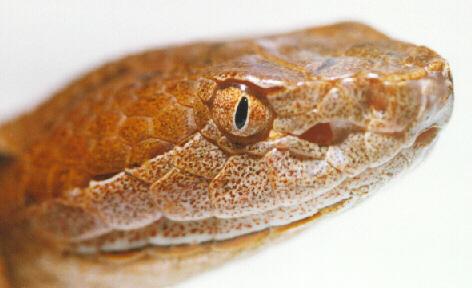People live next to deadly poisons being absolutely unaware of them
Modern people perceive poisons, toxic plants and animals as something that they can never see in their everyday lives
The beginning of the spring season is a joy not only for common people but for toxicological specialists as well. According to doctors of toxicology, the number of patients suffering from severe intoxications reduces in May, when it finally becomes warm in Russia after a long and cold winter. The problem of food poisoning is mainly a problem of cities. As soon as weather takes a warm change, city residents leave their dusty homes and go to the country, where there is always something to do. 
Food poisoning, however, has been taking the third place in Russia on the list of lethal causes for three years running.
Modern people, who spend the majority of their time in the metropolitan environment, perceive poisons, antidotes, toxic plants and animals as something unreal, which they can never see in their everyday lives. However, one can buy lethal poisons in quite civilized stores, in Internet shops and with the help of newspaper classifieds too.
According to experts' estimates, up to 90,000 people die every year on account of acute poisoning. There is no exact statistics on the matter; the same applies to careful approach to the problem. Furthermore, 80 percent of people, who die from poisoning, do not even ask for medical aid.
Alcoholic intoxication comprises the majority of such incidents, followed with carbon monoxide and drug poisoning. Lethal outcomes of the type can be easily prevented at hospitals, if patients ask for help on time. However, specialists of toxicological centers say that they often have to deal with hopeless incidents of poisoning too.
Toxicological aid is categorized as a very expensive medical service. It requires well-equipped reanimation departments, “artificial kidney” apparatus, and other complicated laboratory equipment. The antidote therapy has become a serious problem in Russia during the recent several years – the treatment with antidotes. They used to be produced and purchased in Russia strictly according to instructions from the Healthcare Ministry. Quite a number of Russian enterprises stopped making antidotes after they became economically independent: it is a quite expensive activity, the demand on which is rather unstable.
The identification of poisons makes another problem in this respect. Doctors need to perform the process precisely and quickly to save a person's life, but they require expensive equipment for it. The Russian medical industry manufactures such equipment, but only a few toxicological centers can afford buying the apparatus.
Specialists have very little information about the scale of chronic domestic chemical poisonings. People may poison themselves with lead compounds, pesticides, fertilizers and harmful substances that are used for the production of construction and finishing materials. Medics say that this problem is a lot larger than it might seem to be. Chronic fatigue, indisposition of the unknown origin and sudden development of a variety of diseases may turn out to be just a consequence of intoxication, which people may not notice at all.
Russia experiences a strong lack of toxicological centers. Establishing a new toxicological center requires a very large investment. That is why, Russian specialists decided to use the experience of other large states and develop the system of advisory centers. People can call such centers if they believe that they have suffered a poisoning.
Russian household stores may often sell goods, which contain very strong poisons. Antifreeze liquids are widely available in car shops of Russia, for example: the liquid contains poisonous methyl alcohol. This poison is banned in the national industrial production, although manufacturers may still use it and refer to the poison with the help of little-known synonyms.
Those who wish to bid farewell to alcoholic addiction, can also fall victims to herbal self-treatment. People take hellebore and other herbs, which are actually very poisonous plants, which medics of doubtful reputation recommend for breaking the habit of hard drinking without the addict's knowledge of it. Unprofessional drug stores and peddlers may sell anti-wart medication, which virtually turns out to be sulphuric acid. Russian pediatricians have been striving against the production of vinegar essence for years now: little children often take this dangerous liquid for water and drink it. Children's innocent curiosity leads to brutal internal burns as a result.
Subscribe to Pravda.Ru Telegram channel, Facebook, RSS!




